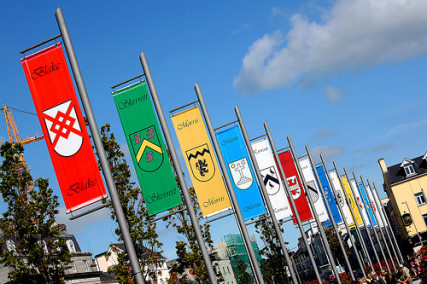
I’m a paleface. As far as I know, I have no Native American blood in me. The closest I’ve ever come to smoking a peace pipe was a hit I once took off my dad’s pipe (not a good idea when you’re 10 years old, by the way). My favorite movie is “Last of the Mohicans”, and I actually love all things Native American. I never wanted to be a cowboy when we played cowboys and Indians as a kid. Indians are cool; cowboys drool.
So what?
Well, I saw something recently that got me thinking about how the church should be more like a tribe rather than a temple. The church is not a building, a business venture, or a 501c3 non-profit organization — it’s supposed to be a community of faith — a tribe if you will. In fact, there are some very strong similarities to church and a Native American tribe.
Tribes have a common identity.
In fact, they take great pride in their tribal history, customs and language. As a tribe, the church has a common history, customs and even a language of sorts. Our past experience may not always be pretty, but warts and all, the blood of Jesus connects us as the body of Christ, and we share a common identity as a tribe of Christ-followers.
Tribes stick together.
The identity of a tribe unites them together. When the tribe flourishes, everyone flourishes. When the tribe suffers, everyone suffers. When the tribe moves, everyone moves. The tribe functions together in a partnership where each part does its part for the sake of the tribe. Figuratively speaking, there is no “I” in tribe.
The Apostle Paul describes our togetherness in this amazing passage found in 1 Corinthians: “Just as a body, though one, has many parts, but all its many parts form one body, so it is with Christ. For we were all baptized by one Spirit so as to form one body—whether Jews or Gentiles, slave or free—and we were all given the one Spirit to drink. Even so the body is not made up of one part but of many” 1 Corinthians 12:12-14 (NIV).
Many parts, one body. Many people, one tribe. Members of the tribe of Jesus should function with Spock’s mentality, “The needs of the many outweigh the needs of the few . . . or the one.” (Trekkies are another tribe!)
Tribes honor their elders.
From the time they are infants, each member of the tribe is taught the value of honoring and listening to the tribal elders. The young and restless are challenged to heed the advice of the old and experienced.
Unfortunately, in our society we typically devalue age and elevate youth. So the young don’t tend to listen, and the old work hard to hide their gray.
I’m all for staying culturally relevant and up with the times, but some things (like wisdom) come with age. Maybe it’s time for us to hear and embrace the words of Solomon, one of the wisest guys to ever live, who said, “The glory of the young is their strength; the gray hair of experience is the splendor of the old” Proverbs 20:29 (NLT).
Whatever “tribe” you belong to in the local expression of the church, please remember, the Church is much more like a tribe than a temple, and that’s a good thing.







I strongly agree. Ideologies in general (and religious ideologies in particular) tend to be used by people as a sort of “membership card” to an in-group. What I love about this is that this technique actually lets groups grow MUCH larger than tribes ever could. This is because by defining membership by belief, it is possible to ignore and transcend the kinship bonds that define tribal societies.
There is a cost though – it becomes economically and politically expensive for members to question the beliefs of the ideology. If you don’t believe “X” then you are not “one of us.”
In-groups are not simply social gatherings, they are also resources that we use in our lives. We get jobs, safety, shelter and so-on from membership. Membership has its privileges.
This means that if you question your beliefs too publicly, you might lose your status as a member of your group, and be “cast out.” In this way, ideologies all charge a premium in the form of dogmatism.